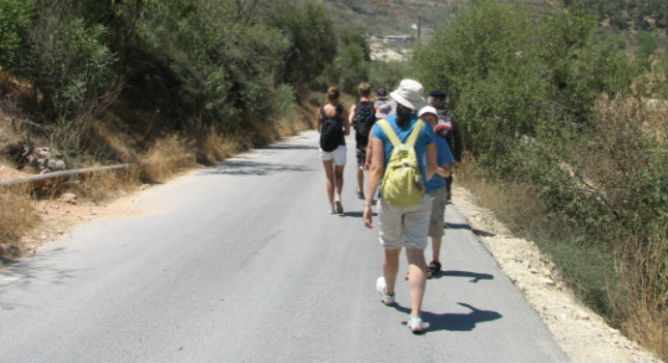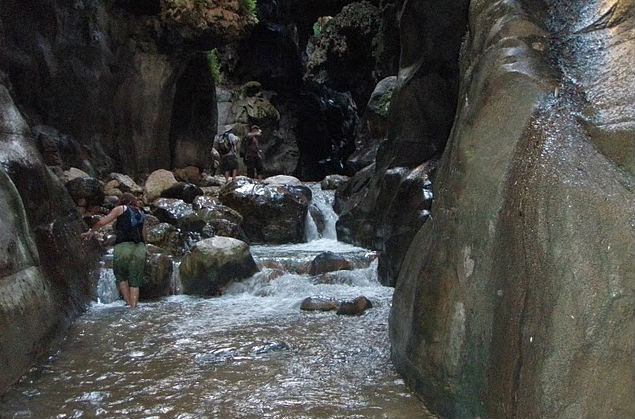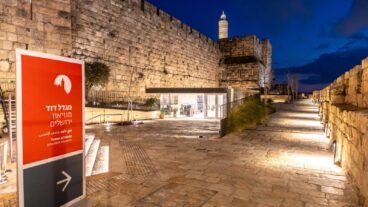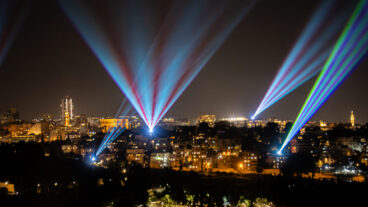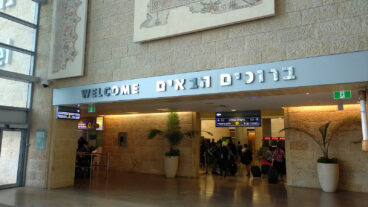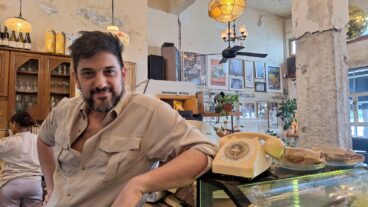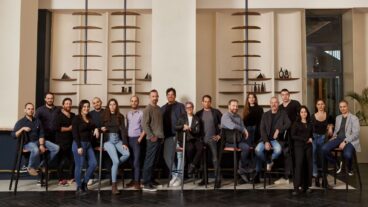The main appeal of backpacking as a mode of travel isn’t necessarily saving money. According to Gal Mor, co-owner of Jerusalem’s two-year-old Abraham Hostel, it’s all about interacting with local people and local culture.
“You are not on a bus with a homogenous group and a guide. You’re on your own,” says Mor, whose establishment is geared to both traditional backpackers and what he calls “flashpackers,” spontaneous travelers who book a flight and one night’s accommodation, hoping that personal connections will facilitate the rest of the journey.
Spread the Word
• Email this article to friends or colleagues
• Share this article on Facebook or Twitter
• Write about and link to this article on your blog
• Local relevancy? Send this article to your local press
Even the backpack is optional. It’s not luggage that distinguishes this class of tourists so much as their desire for interaction, independent travel and off-the-beaten-path exploration.
Because the country is so small, backpacking for a few days enables first-timers to see many more historic sites and landscapes than they’d be able to visit in destinations such as South America or New Zealand, says Mor’s business partner Maoz Inon.
So whether they’re toting their gear on their back or tossing their suitcase in a rented car, backpackers are arriving in Israel in droves – mainly from nearby Western Europe. And entrepreneurs such as Mor and Inon are carving out a niche by building a hospitality network especially for their needs.
An answer for backpackers’ needs
Lee Balot, 31, opened The Green Backpackers lodge just a year ago at the edge of the Mitzpe Ramon natural crater in southern Israel. It offers bunk-like accommodations, Wi-Fi, cooking facilities and gear rental.
“I was a tour guide and I worked in the hospitality industry, but the stuff I really like doing is talking to guests and explaining hikes and trails, which I didn’t have time to do in the hotels,” Balot says. “I also saw that backpackers did not have a real answer for their needs in Mitzpe Ramon. The only cheap places to sleep here are tents outdoors, and it gets very cold in the winter.”
She and her business partner wanted their hostel to be environmentally friendly. They thought about building from scratch with mud, but others told them the best ecological idea was to reuse an existing place.
“Eventually I saw a house that was right near my apartment, with a small elevator, and I knew it was perfect and meant to be,” Balot tells ISRAEL21c. They were still painting the walls when backpackers began arriving, enticed by posts they’d read on backpacking sites. Balot recently added three more rooms by purchasing the apartment next door.
“From the beginning we had people — Germans, Canadians, Dutch, French, Japanese, Russians, Chinese and a few Israelis. Israelis have other places to sleep here and we try to give priority for backpackers from abroad.”
She is working with the Ramat Negev Regional Council on a map of the whole area, showing tourist attractions, bus routes and bicycle trails. Guests can sign up for sunset tours of the crater, telescope tours of the night sky and Bedouin hospitality.
“There are so many more backpackers now that we’ve had to send them to other hostels in Mitzpe Ramon, and it’s gratifying to know we contributed to that,” she says.
No match for Israel
At the Abraham Hostel, veteran backpackers staff a seven-day-a-week n information desk to give their customers — mainly 25- to 35-year-olds from Europe, the US and Australia — destination advice.
“If you have a week and like archeology and hiking, we can put together an itinerary for you,” Mor tells ISRAEL21c. “We also provide our own tours and excursions if something doesn’t already exist or isn’t good. And we offer daily free ‘Introduction to Travel in Israel’ lectures.”
One of the newest tours takes guests to the nearby Machane Yehuda market, where they buy ingredients to take back to the hostel and cook into a Mideast feast with the resident chef.
“More off the beaten track there’s Nazareth, which is fascinating in religious and historic history; Acre [Acco], with its old port and market; the archeological park at Beit She’an; and the Golan Heights or Judean or Negev deserts, including Mitzpeh Ramon,” he says.
Guests interested in culture and nightlife get theater and club recommendations in Tel Aviv, while backpackers into wildlife are directed to nature reserves or the Jerusalem Biblical Zoo, the Hula Valley or the Jerusalem Bird Observatory.
A website called Backpacking Israel lists hundreds of trekking and hiking routes — including the famous Israel Trail.
Inon, who also established the Fauzi Azar Inn for backpackers in the Old City of Nazareth in 2005 and a website about the hostels of Israel six years ago, has backpacked around the world twice.
“I have traveled to some of the most beautiful places in the world, and I realized there is no match for the biblical lands in terms of the history and culture,” he tells ISRAEL21c. “I saw a real potential for backpack tourism in Israel. Guesthouses can often bridge between backpackers and local communities by creating a venue for interaction.”




